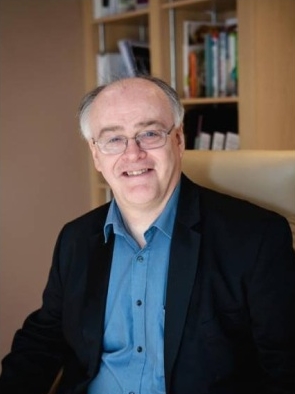Who Will We Become?
One of the interesting conversations that has come out of us being locked down is how will our experience of it change us, as a nation and as a people?
Will it be seen as something that took so many lives, caused huge heartache as well as the ruin of businesses but that we, in our British tradition, put it behind us and carry on as we were before (“Keep Calm and Carry On”)?
Or will it perhaps be viewed as a defining point in our country’s history and that it forms part of a revival of the Christian faith as people turn (or return) to Christ?
Despite the awful onset of the COVID-19 virus and the damage it has wrecked on communities, we have also seen the better part of peoples’ natures. There has been a return of genuine community spirit and people wanting to help other people- whether that is in our case the amazing ‘Risborough Basket’ scheme, or nationally the ‘Good Sam’ NHS Volunteer Responders initiative where over 750,000 people put themselves forward to help in any way they can. People have helped whether it is checking on a neighbour or getting in touch with someone they haven’t spoken to in a while to see how they are doing. We have been re-learning how important it is to love our neighbours -“Love your neighbour as yourself…” (Mark 12:30-31)
That was certainly something that the Queen reflected in her stirring speech when she reminded us recently that “we should take comfort that while we may have more still to endure, better days will return: we will be with our friends again; we will be with our families again; we will meet again”.
But when that happy and joyous time finally comes, will we be a changed people?
There was a similar situation at the very end of the first millennium (999AD) when the Christian world especially in Europe believed that the end of the millennium would be the end of the world, heralded by a great blast from a trumpet -“In a moment, in the twinkling of an eye, at the last trump: for the dead shall be raised incorruptible, and we shall be changed” . (1 Corinthians 15:52), that the dead would rise from their graves to share a last judgement with all those who had not yet died. Christ would return to earth and lead true believers to Paradise.
It was reported that in the months, weeks and days leading up to 999 AD, something extraordinary happened. People forgave each other their debts, husbands and wives confessed to each other suspected and unsuspected infidelities to each other and stayed together. Thieves returned the things they had stolen to their rightful owners. People stopped spending money on attaining things because they realised that they could not store up wealth if they hoped to avoid the final judgement. Those with money and food feed beggars in the street, prisoners convicted of crimes were released from prison, those with wealth gave it away to those more deserving. People flocked in their thousands to churches and cathedrals wanting confession and absolution.
It was described by historians of an astonishing period in our history. People flocked to Jerusalem that year, people forgot any class differences that they had, people sang hymns and psalms when they walked through the street constantly keeping their eyes on the sky. The Christmas that year was thought of as the Last Christmas for humanity- families loved each other like never before, slaves and animals were let go in anticipation of the final judgement.
In the end of course (it is a spoiler!), the world did not come to an end on the stroke of midnight 31 December 999AD. When people found themselves in January 1000 and saw that they were still alive, there was great celebration and relief but ultimately people went back to their previous behaviours. However, writers of that early period talked about the love and forgiveness that people had for each other if only for a relatively short period of time.
Like now, we somehow need to bottle that loving and Christ like spirit that we have been witnessing and ensure that people do not give in to the temptation of returning to how they may have been prior to the outbreak, in not actively loving and looking out for their fellow human beings and not honouring the Lord’s Prayer.
How St Mary’s has been doing church differently does show a way forward. The numbers of people viewing our (and the other 800 UK churches digitally providing services) services online shows the huge and varied desire for peace and love in our world.
Our challenge will be to help them turn to Christ and change our world for the better!
Tags: St Mary's Church, Christian, God, COVID-19


